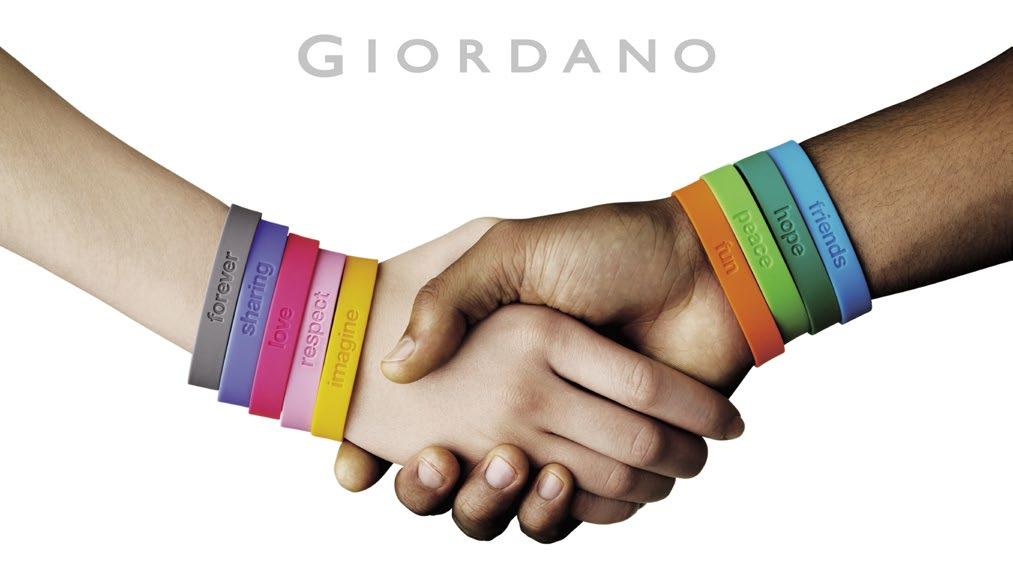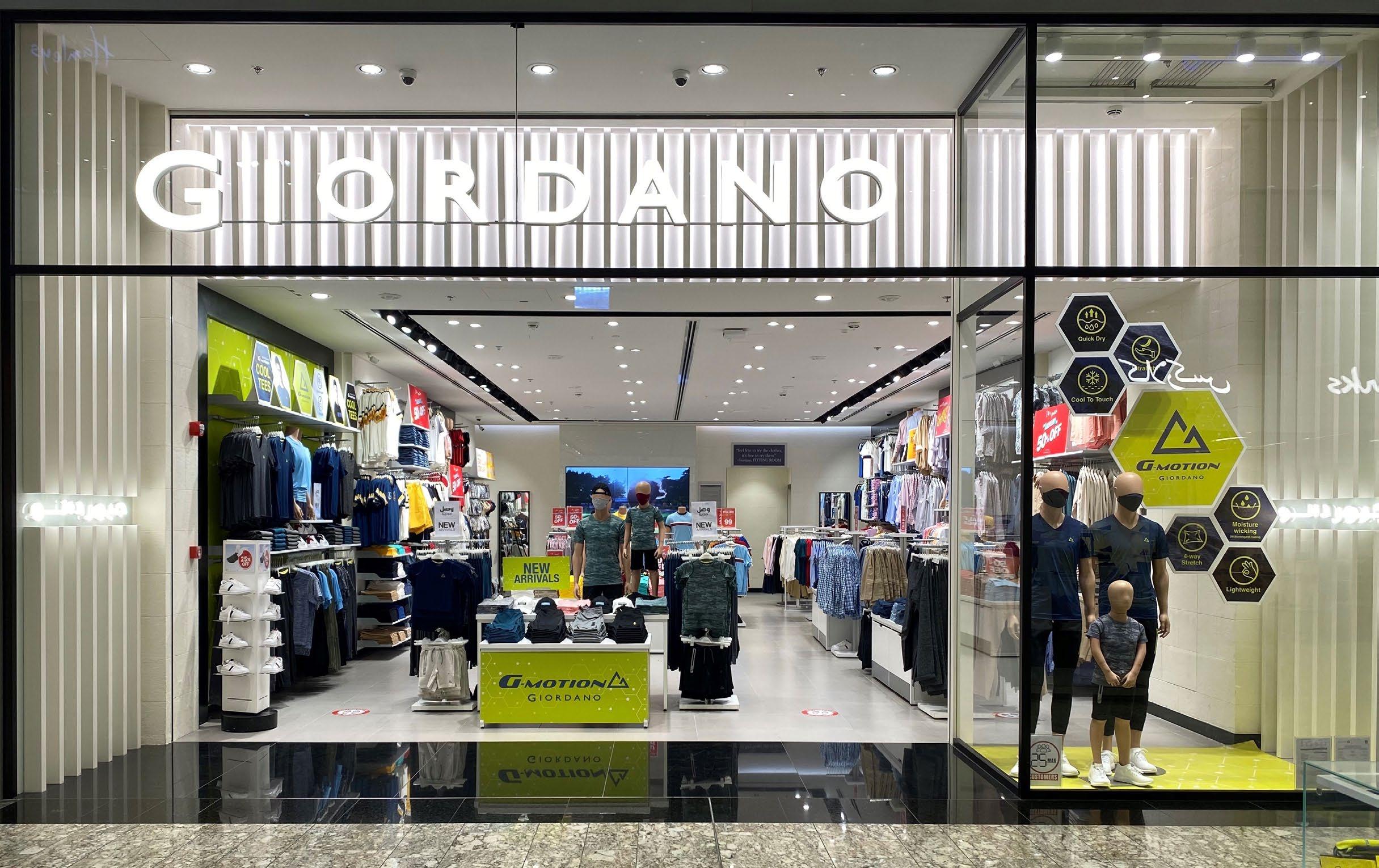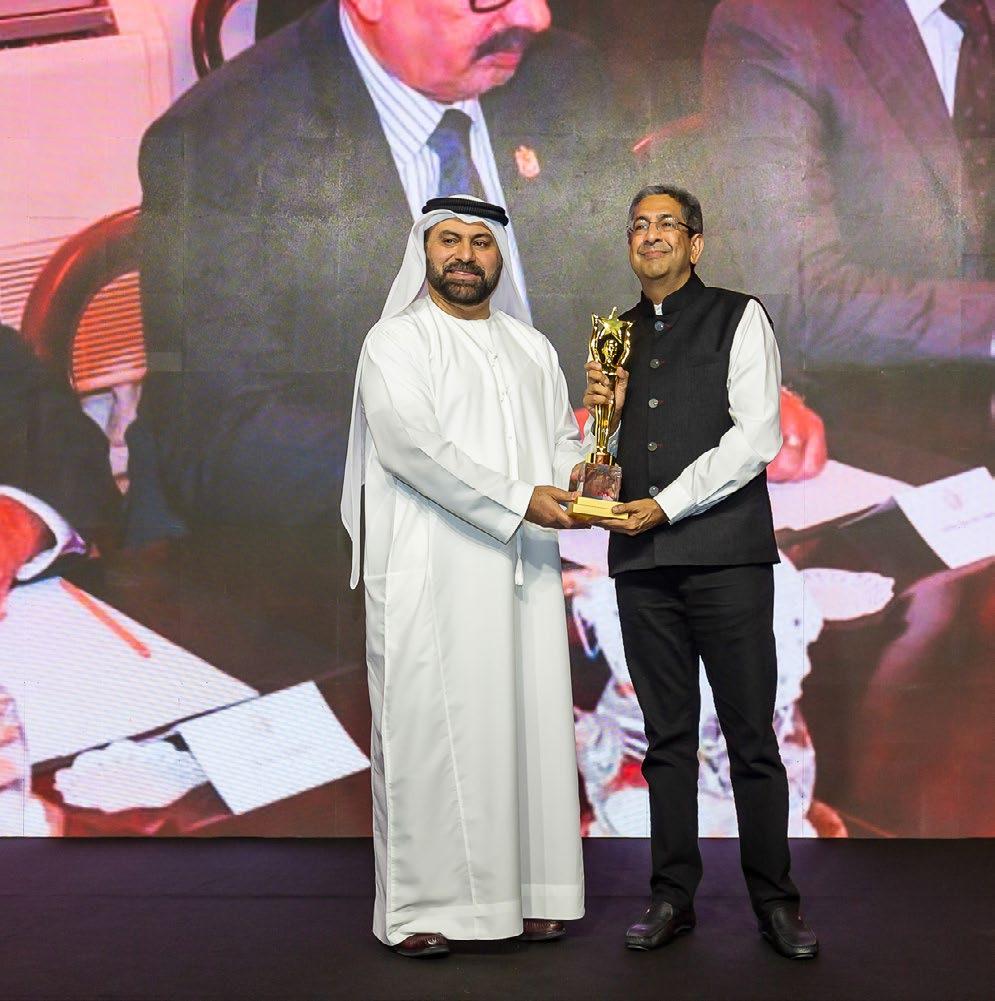
5 minute read
Insights on Resilience and Optimism
Ishwar Chugani
CEO and Managing Director GIORDANO MIDDLE EAST
Advertisement
Iwould like to take this opportunity to say hello to all my industry friends and colleagues. Thank you to the entire MECS+R team for inviting me to share my own personal experiences and insights during this interesting time.
A few days after the lockdown, I came across a quote that changed my entire perspective – “We cannot control what is happening, but we can control the way we respond to what is happening.”
With this in mind, we put all our energy and focus to ensure our team at Giordano and their families were all well. We kept our employees informed on how we as a company were handling the situation and what we were doing for them. We wanted them to know that we were available to them at any time during this challenging and unpredictable time. We engaged with them consistently and encouraged them to be part of the company decision-making process.
Companies who take proactive steps and have the flexibility to respond to the market changes are less affected than those who take their time or do nothing at all. Covid19 has taught us the importance of shredding complexity in anything and everything to allow for faster decision-making. This allows us to be more nimble and flexible. In times like these, we have to be able to bend with the situation, and not snap against it.
We noticed a dramatic shift in how people work, dress up, shop, and socialize after staying at home for a period of time and having to comply with the health and safety protocols during the pandemic. And so, we as a retailer also had to adapt to our consumers’ lifestyle changes - for example, the rising demand in comfort wear for ‘at-home’ time and a preference for contactless or cashless transactions. Some industries especially fashion like

us have to now focus more on seasonless stock – embracing the classic ‘Less Is More’ approach.
Consumers today expect more honesty and transparency from brands and businesses. Health and Hygiene are taking precedence and consumers are keen to know how brands are managing that end to end.
We have also had to rethink our supply chain to bring in more flexibility. After careful review, we have reduced our options and numbers of SKU’s, as many of the items that were good sellers before may no longer be moving as they were.
Investment in Digital Innovation and our online business will be a priority across all levels. We learned so much from this pandemic that we were able to accomplish many positive changes, technology-wise, in a few weeks that might otherwise have taken us years.

Going forward, a key area to look at would be how to improve the ways our team members can work remotely and how we can enhance contactless solutions and payment methods in our stores - we are seeking more innovative ways to reach out to our customers, remotely and virtually, to enable them to continue shopping with us.
The GCC region has all the ingredients to support the growing retail market. We are fortunate to be located in a very resilient and dynamic market. The GCC’s geographical location, especially the UAE as an international hub, will always be an asset and the continuous influx of regional and international tourism will keep feeding the growth. When situations change, you have to rethink current strategies and build on the strengths that have served you well in the past. With this in mind, retailers need to decide what they are good at and what they stand for and then make sure that every aspect of their operation reflects that proposition.
In the past, it was all about becoming a bigger retailer and most major brands wanted to have bigger stores and more square feet than other retailers. With the rise of the e-commerce giants, the mindset has changed. Today, profit growth can come from contraction – closing unprofitable stores and pulling out of poorly performing business areas.
Retailers will have to continuously look for more innovative approaches to training and staff development to adapt to the evolving retail landscape. To be a salesperson is not enough – retail employees are ambassadors to the brand and integrate to the human experience. And shopping is all about relationships. Today’s customers rarely buy from a company, they buy from a person, a person they trust, a person that is knowledgeable, and a person that delivers what is promised.


Ishwar Chugani receiving the Retail Professional Award at the 2019 Retail Congress MENA
As retailers, we need to go back to basics to make shopping enjoyable and make sure factors such as customer service, health and safety, price point, technology integration are taken care of so that a customer’s in-store experience is as seamless as possible. Today’s customers expect no less.
A company’s culture is the ultimate competitive advantage. Competitors can steal your products or services or even key employees. However, they cannot steal a great company culture. In my over 40 years in retail, I have learned that the key to survival is not assets, not funds, not systems, not processes but PEOPLE and their ATTITUDES. To continually exceed customer expectations, brands must ensure that customer interaction are rooted in empathy, engagement, and emotional intelligence - areas that have not been talked about enough.
The retailers that will survive and thrive are those that understand their customers – and know what services they will value in-store. There is no single magic formula that works for all retailers. The way forward for retailers is to understand the critical importance of connecting with consumers. The future of retail will be built around the experience economy, where what you sell is less important than how you sell it. Forget about product differentiation – the future of retail will be all about distinct experiences – create one, and you will establish a long-term relationship with your customers.
I end my talk with a quote from Steve Jobs – “Get closer to your customers. So close that you tell them what they need well before they realize it themselves.”










